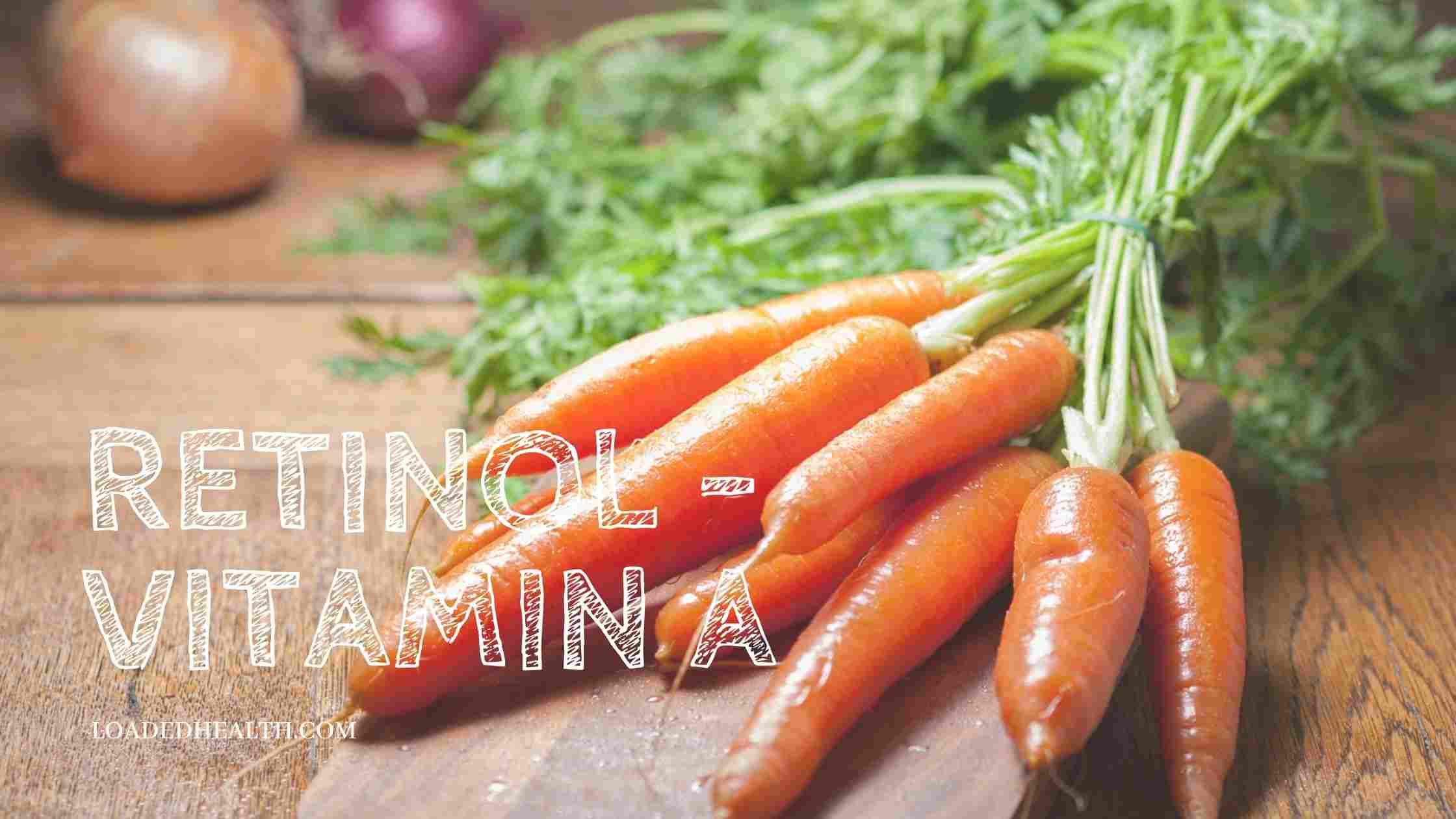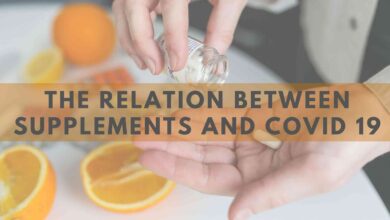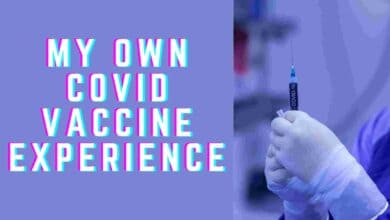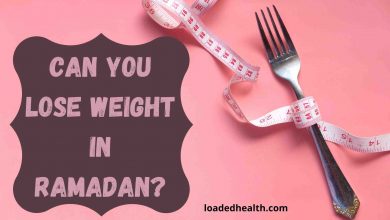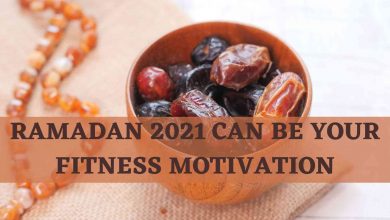Vitamins are one of the essential elements required by the body. Let us look at Vitamin A and its types briefly. Moreover, What is the impact on the human body, the quantity required, and the benefits?
Our body needs certain elements to function properly. Vitamins are one of them. After the detailed discussion of fat soluble vitamins and water soluble vitamins. Lets us start the individual discussion of every vitamin. Starting with Retinol (Vitamin A).
This Article Contains
Types Of Vitamin A
Vitamin A belongs to the group of fat soluble vitamins. There are mainly 3 types of Vitamin A. These are collectively known as retinoids:
- Retinol
- Retinal
- Retinoic Acid
Vitamin A is available in 4 generics:
- Retinol
- Retinyl Palmitate
- Aquasol A
- Retinyl Acetate
Vitamin A Function
Why Our Body Needs Vitamin A (Retinol)?
The mechanism through which Vitamin A functions is mainly by producing the pigment called Retinol. That Is why it is also named after that pigment. Retinol is present in the retina of the eye. Functions in promoting the vision mostly in the dim light.
Vitamin A is an essential component required by our body. It plays a key role in many functions of the human body. Furthermore, it ensures that your vision is maintained at its best.
It also makes sure that your ability to fight against diseases is also in the best condition. Helps in maintaining healthy teeth, soft tissues, muscles, body membranes. Vitamin A is known for aiding the development of babies in the womb as well.
How Much Vitamin A Your Body Needs?
As per Harvard Health Publishing, the Recommended Daily Intake (RDI) for Vitamin A are as follows:
- An average adult man requires 900 micrograms per day.
- For an average adult woman 700 micrograms.
In-depth RDA includes:
- Newborn to 6 months age: 400 micrograms
- 6 months to 12 months age: 500 micrograms
- 1 year to 3 years of age: 300 micrograms
- 4 years to 8 years of age: 400 micrograms
- 9 years to 13 years of age: 600 micrograms
- Above 12 years of age: 900 micrograms for men and 700 micrograms for women.
- Pregnancy: 750 – 770 micrograms
- Lactation: 1200 – 1300 micrograms
Top Richest Natural Sources For Vitamin A (Retinol)
Vitamin A (Retinol) occurs naturally only in foods that include animal meat, vegetables, and fruits. Let us take a look at the top richest sources are:
- Beef Liver: The liver of beef is the richest source of Vitamin A. It contains 6421 mcg per slice, equivalent to 713 percent of the daily value (DV) per serve.
- Lamb Liver: This is the second richest source on our list. It consists of 2122 mcg per ounce, equivalent to 236 percent DV per serving
- Sweet Potato: Sweet potato is third on our list of richest sources of Vitamin A. Sweet potato contains 1836 mcg per cup, equivalent to 204 percent DV
- Liver Sausage: It contains 1495 mcg per slice, equivalent to 166 percent DV.
- Cod Liver Oil: It consists of 1350 mcg per teaspoon, equivalent to 150 percent DV.
- Winter Squash Cooked: 1144 mcg per cup, equivalent to 127 percent DV.
- Kale Cooked: 885 mcg per cup equivalent to 98 percent DV.
- Turnip Greens Cooked: 549 mcg per cup, equivalent to 61 percent DV
- Carrot average 392 mcg per Carrot, equivalent to 44 percent DV
- Cheese
- Eggs
- Brocolli
- Dried Apricot
- Avacado
- Nuts
Benefits Of Vitamin A (Retinol)
- It ensures the normal functioning of the eyes and protects the eyes from night blindness and weakness in vision overage.
- It is beneficial to health as it reduces the risk of certain cancers in the body.
- Boosts the immune system that helps you fight against diseases more actively.
- Vitamin A can reduce your chances of having acne. The mechanism is still not clear, but it is seen that deficiency leads to more acne.
- Vitamin A is crucial to important bone health. It helps the bones to become strong and tough.
- Enhance fertility.
Vitamin A Deficiency
What Will Happen If You Don’t Have Enough Vitamin A?
Not taking enough Vitamin A can cause infertility, reduced growth, and your chances to develop skin diseases and acne increase to some extent. Your immune system may not work properly due to lacking. It may trigger other diseases as well, like cancers.
SYMPTOMS OF RETINOL DEFICIENCY
The symptoms include:
- Dryness in eyes
- Skin dryness
- Vision loss
- Night blindness
- Difficulty in conceiving
- Frequent infections
- Delayed growth
- Delayed wound healing
- Skin breakouts
- Infertility
DISEASES CAUSED BY VITAMIN A DEFICIENCY
Diseases caused by deficiency include:
- Xerophthalmia Dryness in the eyes, low vision in dim light, corneal dryness, may cause ulceration.
- Keratomalacia: ulceration and necrosis of the cornea.
- Night blindness: Unable to see in the dark or low light.
Vitamin A Toxicity
What Will Happen If You Have Too Much Vitamin A?
The biggest problem that may occur if you have too much Retinol is Chronic Toxicity. This happens when Vitamin A keeps accumulating in your body for a good period of time. The symptoms include affected vision, bones, and skin changes. The liver might also get damaged.
- Fits
- Blurred vision
- Headache
- Hair loss
- Increase Intra skull pressure
- Increase cholesterol
- Appetite loss
- Dryness of mucus membranes
- Joint and muscle aches
- Nausea, vomiting
- Diarrhea
Frequently Asked Questions (FAQs)
ARE VITAMIN A AND RETINOL THE SAME THING?
Vitamin A and Retinol are often interchangeable terms. But the answer to the question is No. Retinol is a type of Vitamin A found in animal sources such as liver oil.
CAN VITAMIN A CAUSE MISCARRIAGE?
Yes, If taken in HIGH doses Vitamin A is said to be fetotoxic and initiate miscarriage, especially in the first trimester.
WHY IS VITAMIN A NOT GOOD FOR PREGNANCY?
Vitamin A is not good for pregnancy ONLY IN HIGH doses as it can cause miscarriage and harm the fetus’s development causing congenital anomalies. If taken after 1st trimester and in recommended doses usually harmless and even needed in recommended amounts during pregnancy for good fetal growth.
WHAT IS VITAMIN A GOOD FOR?
Many health functions like vision. It also reduces cancer and supports your immune system.
WHAT TYPE OF VITAMIN A IS BEST?
Retinol is the best type of Retinoids as it is the best absorbing form.
WHAT DOES VITAMIN A DO TO YOUR FACE?
It prevents skin dryness and breakouts.
WHICH FOODS ARE HIGH IN VITAMIN A?
Cod Liver oil, eggs, vegetables, and cereals are high sources of retinoids.
IS RETINOL GOOD FOR YOUR SKIN?
Yes, Retinol is good for the skin as it reduces wrinkles, breakouts, acne, and dryness.
CAN RETINOL DAMAGE YOUR SKIN?
Yes, Retinol can damage your skin if you are using retinol that is too strong for your skin or taken in high quantities.
Vitamin A – Retinol Video
The Bottom Line
Too much or too little Vitamin A can lead to damages to your body. It is necessary to take the optimum amount of Retinol so that it does not cause significant damage to your body due to shortage or excess.
